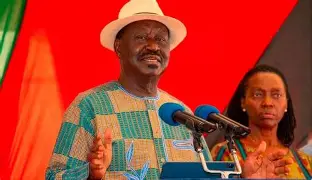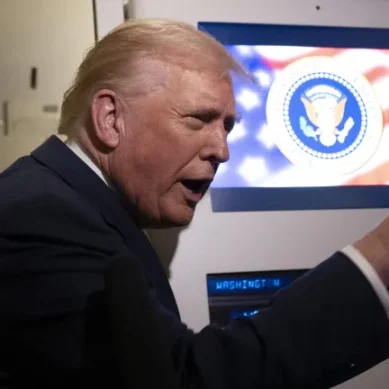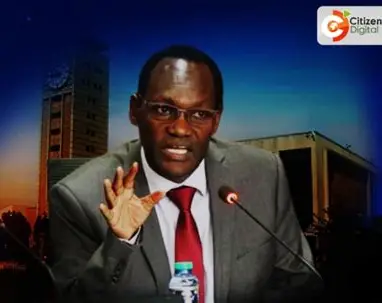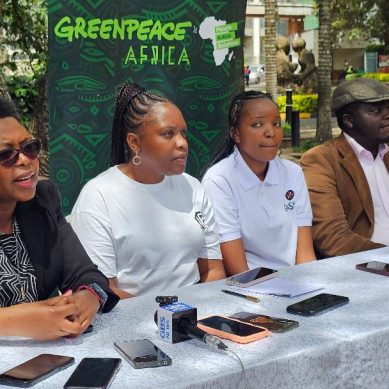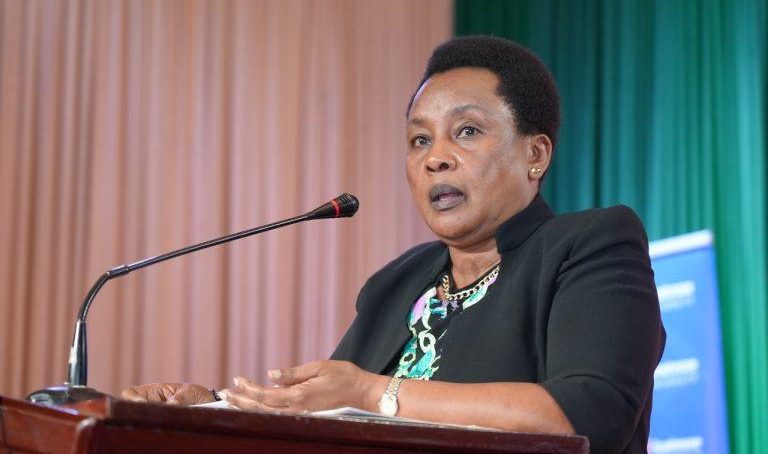
Deputy Chief Justice (DCJ) Philomena Mwilu says the judiciary is committed to protecting children’s rights and eradicating child labour in Kenya.
Speaking during the official closing of the Third Employment and Labour Relations Annual Symposium and Exhibition (ELRASE 3) at Strathmore University in Nairobi, Justice Mwilu told civil servants, civil society and the private sector to treat child protection as a matter of urgency.
Mwilu observed that the law is only as effective as its implementation, and called appealed to judicial officers to show courage and creativity in interpreting and applying legal provisions for the benefit of children. She noted that every decision delivered by the courts has the potential to transform the lives of children and their families.
“Every judgment we deliver, every child-centred case we hear, provides us with an opportunity to tip the scales of justice in favour of the vulnerable,” DCJ pointed. She said the elimination of child labour is not merely a legal responsibility, it is also a profound act of social justice.
Further, she praised ELRASE as a critical forum for exchange and collaboration, describing it as a space where policy, law and practice intersect to advance labour justice.
According to the DCJ, the fight against child labour is about much more than statistics – it is about dignity, humanity and the promise of a brighter future for every child.
“The fight to end child labour is about giving every child the chance to dream, to learn and to live free from exploitation. No child should be invisible when they ought to be heard; no child should be forced to work when they should be learning; and no child should suffer when they should be safe,” Mwilu said.
Additionally, Mwilu highlighted the risks faced by children in displacement contexts such as refugee camps, informal settlements, and conflict-affected areas.
These environments, she posited, often leave children more vulnerable to exploitation and abuse and therefore called for stronger cross-sector collaboration, noting that child labour is not only a violation of human rights but also a barrier to Kenya’s long-term social and economic development.
The symposium explored Kenya’s legal and policy landscape, examined regional and international conventions such as those of the International Labour Organization (ILO) and the African Charter on the Rights and Welfare of the Child, and evaluated the potential of emerging technologies like artificial intelligence in detecting, reporting, and preventing child exploitation.
According to DCJ Mwilu, the judiciary is guided by its institutional blueprint: ‘Social Transformation through Access to Justice’, that prioritises the protection of vulnerable groups including children.
She pledged that the knowledge and strategies generated from ELRASE 3 would feed directly into strengthening jurisprudence around child labour and the protection of minors’ rights.
Employment and Labour Relations Court Principal Judge Byram Ongaya echoed Mwilu’s sentiments, stressing that child labour directly contravenes the rights enshrined in Kenya’s Constitution, statutes, and international conventions.
He urged the Judiciary and partners to remove barriers that hinder children’s access to justice, including prohibitive costs, geographical distance, language barriers, stigma, and fear of retaliation.
“There must be remedies that go beyond the termination of harmful labour arrangements. We need remedies that restore dignity, provide care and ensure the long-term protection of children,” Ongaya said.
The judge observed that strategic litigation and public interest cases are key to bridging the gap between written laws and the lived realities of children.
Meanwhile, ELRASE, now in its third edition, has established itself as the Employment and Labour Relations Court’s flagship platform for dialogue and knowledge-sharing.
The annual symposium brings together judges, lawyers, scholars, policymakers, labour practitioners, and development partners to address pressing issues in labour law and justice.
This year’s theme, Elimination of Child Labour and Strengthening Children’s Rights, reflects growing national and global concern over child exploitation. Discussions throughout the three-day forum underscored the urgent need for multisectoral approaches, stronger enforcement of existing laws, community awareness and innovative solutions to safeguard the welfare of children.
In her part shot, Mwilu issued a rallying call stating: “The protection of children is not just a responsibility of the judiciary, but of society as a whole. If we fail to protect them, we fail our collective future.”
- A Tell Media / KNA report / By Mary Ndanu and Samuel Kivuva
